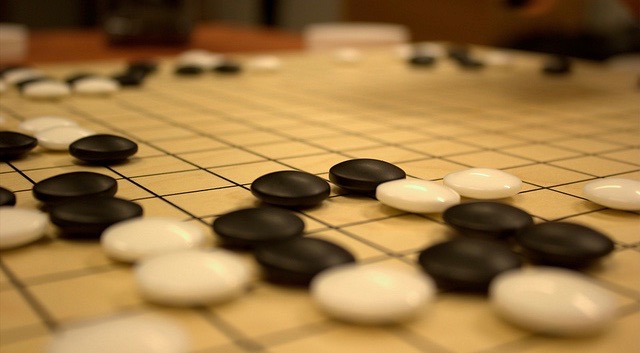
Google AI versus the Go grandmaster – who is the real winner?
Google AI versus the Go grandmaster – who is the real winner? https://www.citizenme.com/wp-content/uploads/2016/02/8297692520_4e7a43ffcf_z-1.jpg 640 353 Neil Lawrence Neil Lawrence https://secure.gravatar.com/avatar/0662964a0da74cae60d93a8a9d401cb5?s=96&d=mm&r=gMy latest post on The Guardian:
The achievement has been hailed as a breakthrough in artificial intelligence, but computers are much less efficient than us
Today we were greeted by the front page of Nature hailing a breakthrough in artificial intelligence: computers are now outperforming even the best humans at the Chinese game of Go, long been seen as the last preserve of human game-playing mastery. The breakthrough, from a team based at Google’s DeepMind group in London, has come much earlier than many experts expected.
The achievement is also being hailed as a breakthrough in understanding human intelligence, and a large step towards emulating it. However, so was Deep Blue’s achievement when it first beat chess world champion, Gary Kasparov, nearly 20 years ago. So where does this latest success really bring us?
The system that the DeepMind team developed is based on two main ideas: machine learning and random game-tree search. Searching a game tree is a way of exploring and evaluating possible future moves. A planning system for looking ahead in the game. Machine learning is a technique for training computers by showing them data: in this case board positions from the game. You train the computer to recognise good patterns on the board.
The computer is trained by making it play against itself, it can then learn from the games which board positions resulted in victory. To do this it had to play many millions of games. By the time it played against a human being it had played more games of Go than any human possibly could within their lifetime. This means the rate at which it learns to play is far slower than any human.
Continue reading on The Guardian here.
Picture Credit: Jaro Larnos, Creative Commons Attribution 2.0 Generic (CC BY 2.0)
- Post Tags:
- AI
- DeepMind
- Machine Learning
- Posted In:
- Business blog
- Citizen blog
Neil Lawrence
Neil holds the collaborative Chair in Neuroscience and Computer Science at the University of Sheffield. Neil’s main research interest is machine learning through probabilistic models. He focuses on both the algorithmic side of these models and their application. He was Program Chair of NIPS in 2014 and is General Chair for 2015. Neil has a monthly column in The Guardian and is writing a book about Data Ethics. He enjoys cycling and last summer he spent six weeks cycling up and down the Alps. Many have tried, but no one has figured out how he fits everything in.
All stories by: Neil Lawrence





Leave a Reply